|
Having recently seen ‘First Man,’ Neil Armstrong is the latest in a line of interesting film choices from Ryan Gosling. From his early career when he was mostly famous as a romantic love interest, and what a love interest!, he’s gone on to work in a wide range of genres, garnering two Oscar noms even if the box office hasn’t quite met expectations. His bread and butter is playing emotionally closed off characters, his handsome handsome face hinting at extra depth and tortured inner lives, to varying degrees of success (at least God forgives because I do not forgive the turd that is Only God Forgives). However he’s also proven gifted at action, comedy and bringing sympathy to characters not the easiest to like. I haven’t seen all his movies yet - sorry Carol, still haven’t made it to Lars and the Real Girl - so this isn’t an exhaustive list and it’s skewed mostly towards his more recent work. This may be affected by the circumstances in which I first saw them, it being so much more engaging seeing a film at the cinema opposed to on a laptop with your own face reflecting back at you. So, does his turn as Neil Armstrong make it into my top five Ryan Gosling movies? Short answer is it doesn’t. La La Land
This was a toss up with Half Nelson, this pipping it mostly because it was much better than I expected it to be. It is the old style cinema musical, but there are plenty of modern elements simmering underneath. This isn’t a love story where the leads amount to one character together, but one where both have clear, distinct goals and ambitions which often put them in conflict with each other. Gosling is jazz musician Sebastian, who could so easily come across as insufferable as he is arogant and condescending, but over the course of the film you warm to him as he drops the act, and you see exactly where that passion comes from. Also he learned to play piano for this role, the big dreamboat. Drive I loved this movie when it came out, brilliantly stylish with an iconic soundtrack and a great cast. However I made the mistake of watching it too often, too soon, and the lack of real depth became more apparent with each viewing that it made me wonder why I liked it so much in the first place. A few years down the line I gave it another chance and some of the initial joy of watching it returned, the opening car chase, Albert Brooks’s loveable bad guy and Gosling oozing cool. It played to his strength of looking handsome while doing basic tasks in a very purposeful way. Also I’ll never forget the entire cinema gasping at the lift scene. Look forward to watching it again in five years. The Big Short It was perhaps strange this worked, its premise essentially uncovering a mystery we all already knew the result of (similar to Spotlight which won Best Picture the same year), but that almost lifted it in that otherwise it could have seemed too surreally stupid to have happened. It’s punchy style and filmmaking flair gave real energy to what could have been staggeringly complex, while stoking exasperated anger about one of modern history’s worst injustices. Gosling plays a more incidental character and narrator Jared Vennett, a real arsehole only out for personal gain who you still get onside with, largely due to him being so honest about his arseholeness. The Nice Guys Shane Black is one of my favourite writer/directors with his blend of comedy/action right up my street. There is no incidental action in his films with every seemingly innocuous action having an unexpected, often hilarious consequence, such as Gosling’s Holland March trying to break into a bar and cutting his wrist on the glass window. He proved funnier than I think most expected, playing the foil to Russell Crowe’s straight man in a much more ineffectual, squeaky role we’d seen him play before. The plot is mostly an excuse to take you from one setup to the next with the laughs never letting up the whole way. Proper gutted looks unlikely we’ll ever see a sequel. Blade Runner 2049 My top film of 2017, and that’s even without being much a fan of the original. Was totally swept up in the narrative, carried along by Gosling’s K replicant investigating whether he may, or may not be a miracle child. Playing a robot meant another more subdued role for him, but the glimpses we get into the turmoil underneath are played at just the right pitch. The relationship with Joi is one of the film’s heartbreaking highlights, along with remarkable sound design, incredible visuals and a feeling that stays with you long after. Yes it may be slow and ponderous, but embrace its languid tone and you’ll get the most out of this stunning cinematic experience.
0 Comments
2018 has been an amazing year for the PS4. First its opening weekend sales record for an exclusive game was crushed by God of War, only to be crushed again a few months later by Marvel’s Spider-Man. This was helped not just because of established franchise recognition and hermit reaching marketing campaigns, but also them both being very good games. They were each rightly praised for their gameplay and beautifully designed worlds as well as the stories they chose to tell. What appealed to me most was after previous games focussing on mythologies I knew a lot about - I can talk Greek mythology and Batman for days - these were set in worlds I had a much more limited understanding of. In Norse mythology and Spider-Man I was just a dirty casual, knowing the A-Listers while only able to smile and nod politely if you started talking about the lesser schmucks that flesh out their universes. Both these games were able to shake me from my ignorance, however they both approached it in different ways. Contains spoilers for God of War, its prequels and for Spider-Man (though not if you know the Spider-Man mythology). After leaving the Greek pantheon the sum total of a disappointed ghost and a suddenly very lonely goddess of love, Santa Monica Studios needed someone new for sentient scowl Kratos to butcher. Enter the gods and creatures of Norse mythology. Though, you could play this game without any prior knowledge of the God of War series, since the only common story fixture is Kratos himself, and he’s more guarded than Odin in Valhalla (reference!). On the whole this isn’t an issue, building the allure of a mysterious outsider with a dark past, but for those who have played the previous games, there are some unsavoury elements it doesn’t bother addressing. (Did he ever tell his new wife and child his white skin is actually the ash of his old wife and child he personally murdered? That’s a hard one to casually drop over dinner.) This was a concern of mine before launch that they were still using the same protagonist, since his story had neatly wrapped up in the original trilogy. However they use this to the game’s advantage both in character development and for expository reasons. This is a troubled man searching for peace, having fled his homeland (which he flooded under the sea, eliminated the sun from (by ripping his head off) and released the spirits of the dead in) he has found a new family and is trying to live a quiet life, while being a better father to his son than his was to him - a pretty low bar since his impaled him with a magical sword (maybe best they didn’t bring ALL the backstory over). From a narrative POV, having Kratos as an outsider makes him a perfect avatar for the player, so we learn about this world with him, and it makes sense for other characters to exposition dump on him. Kratos very much is the reluctant hero, only embarking on the game’s quest due to his wife’s death. His journey, and many of the supporting characters, fit the mythical hero’s journey to a T. His son, Arteus, is the perfect companion, his cheery demeanour contrasting Kratos’s gloom and drawing him out his shell. There is the old mentor, Mimir, who helps him proceed on his quest, and he literally meets a witch in the woods. The challenges he faces are epic and entertaining, and by journey’s end he has fulfilled his surface want and emotional need. All in all, a good story well told. The way God of War 2018 introduces you to the Norse myths, which I had previously found confusing and inaccessible, is both very effective and remarkably straightforward. It basically has a character, old man Mimir, tell you stories. For all the huge budgets and visual trickery we have now, there is still a joy in someone telling a story well. It cleverly places them in sections of the game where you are travelling (and I’m sure the game is busy loading) with nothing else to distract you, and you get hooked simply listening to them. Often I would wait just next to the place I needed to be so I would hear it to the end. They are broken into brief, easy to follow tales, and I came away feeling I was fully clued in on all legends Norse. In a way... Starting in God of War III gods have served as the baddies, as a way to rationalise Kratos’s indiscriminate killing (“No, he was right to gouge out that helpless man’s eyes!”). Here, instead of shifting to that narrative after a couple of games when Kratos gets too murdery, it makes it clear from the off. It reinterprets myths with a modern viewpoint, making the old Norse gods the uncaring villains, such as twisting the original Norse version of “isn’t it great Thor killed all those massive, terrifying giants” to a thoroughly 21st Century interpretation of “isn’t it awful Thor killed all those innocent, defenseless giants.” The line is still “Thor killed giants,” but while the Vikings prized skill in battle and bravery, due to the Dark Ages being brutal, now compassion and tolerance are the more valued attributes in our much less brutal times. Stories always will reflect their own time, it’s what keeps them relevant and interesting to listeners and how they survive. Writers have to reinterpret existing pieces and fit them together in one narrative jigsaw so they can progress them and tell their own stories - unless that religion is still practiced, then don’t dare. So I’m fine with them making changes to these characters, as they encouraged me to seek them out and learn more for myself, except for one key element. I didn’t care for the twist that Atreus is actually the god of mischief Loki. After hours of detailed world building and creating links between all the gods and their (mis)deeds, for one of the most important figures in many of those stories to have not existed in this universe feels like it’s leaving a hole. Plus the fact that Atreus has shown none of the same characteristics of the unpredictable and often antagonistic Loki - apart from that hour where he gets a bit cocky - it feels like a twist for twist’s sake. He is Loki in name only, and if the name is stripped of everything that made them that character, surely they are not the same? All that said I came away from God of War 2018 feeling on top off all things Norse, from the realms to the Vanir, to how you actually pronounce half the damn names. Fortunately I mopped all this up just in time for the next big PS release, Marvel’s Spider-Man, which took a different approach to introducing its mythology. Spider-Man wisely chooses not to tell its hero’s origin story. After multiple movies already covering that ground in the last 20 years, it’s safe to assume everyone buying this game is aware of the spider bite and Uncle Ben and “Great power” and so on and so forth. Peter Parker has now been Spider-Man for 8 years, so we can just go out and have fun doing hero things, like chasing pigeons. Therefore its backstory is doled out differently, through newspapers Peter has kept as mementos and in trinkets left in backpacks throughout the city, which Peter reminisces over when you find them. It’s a nice touch, particularly as it embraces events that happened in the unrelated movies, which is will be most of its players main experience with Spider-Man. Comic book superheroes are the closest modern equivalent to ancient myths. In terms of the larger than life characters and the often simplistic, though sometimes metaphor dripping moral parables they tell. You can easily see Marvel and DC being compared in the same way the Greek and Norse religions are in centuries to come (with the almost religious fervour of some fans, no wonder). This must come from the sheer volume of stories they have to give them the legs and variety they need to survive the ages, however this can also be a negative. I like comic books adapted into other mediums, as it forces them to abandon decades of their mostly far fetched, logic threatening decades of backstory and streamline it into one easily consumable piece of entertainment. It strips the characters back to their archetypes, which is when they can be written for with more freedom. The best handled bit of backstory (imo) is the relationship with MJ. It is the main deviation from what I knew and it chooses to play it coy, not playing its hand all at once, instead teasing it out over the course of the story. This results in their interactions being full of subtext and how it develops over the game is one of the better arcs. What doesn’t work as well is the introduction of Spider-Man’s B-tier villains. Maybe it’s because the story didn’t give any time to flesh them out, or maybe it’s because they’re all a bit crap. Over half of them wear full body, face obscuring, animal themed mech suits and all for some reason “turned to crime!”, a favourite comic book baddie cop out. They’re one dimensional and interchangeable, except for maybe Rhino in one genuinely tense stealth segment. Though Spider-Man doesn’t show us how Spider-Man came to be, it is still an origin story. It’s a shame it’s for arguably the second most well known Spider-Man character. Playing the day to day life of Peter Parker sans costume is an important part of the game, and when you go to work you meet his boss, a friendly chap called Otto Octavius. He’s very nice, mild mannered, a bit of a dweeb and he’s concerned that his robotic arm project will get shut down. Immediately, if you’ve spent even five minutes with anything to do with Spider-Man, you know that those metal arms are going to become welded to his back and he will go full psycho. Surprise! That’s exactly what happens. After spending most of the game building up Martin Li - with the obligatory shoehorned in personal connection to Peter - as the main villain Mr Negative, about two thirds - three quarters of the way through it does a 180 and reveals that actually Dr Octavius, or ‘Doc Ock’, who’s transformation goes from being carefully and gradually seeded to break neck speed, is the real criminal mastermind. My main issue with it was the pace with which it happened. Until halfway through Otto’s villainy was barely touched on, then in the space of a few hours he has perfected his previously faulty arms and lost near every shred of decency. Meanwhile Martin Li, a villain I’d never heard of before and was genuinely interested to see where his story would go is relegated to the role of lackey. It doesn’t help I never quite bought their central motivation either. There is something to be said for dramatic irony. At the first mention of Dr Octavius when him and Peter are best pals, I thought “Ho ho! Can’t wait to see this blow up.” But then that creates a very heavy pressure on telling a story that does it justice. If everyone already knows the destination then the journey there must be surprising or thrilling. Otto Octavius must become Dr Octopus or else he is not that character, that’s the archetype we as an audience have come to expect of him as dictated by decades of myth building, but it’s the execution of it that makes the story worth telling - though I did enjoy beating him up as the final boss battle, so more hypocrite me.
As humans we are biologically built to respond to stories and certain structures and elements within stories. People love the same but different, whether that’s stories fitting the three act structure or characters we’ve grown up fighting the villain they always have been in slightly new circumstances - to the chagrin of those trying to launch original properties everywhere. With huge worlds, intertwining casts and stories laden with symbolism, ancient myths and modern superheroes have the best worlds to explore and exploit for that, and no medium is able to immerse you in those worlds better than video games. Having spent time in both universes I got totally absorbed in the stories they told, both their main story and all the dozens that rounded them out. God of War 2018 arguably had an easier job, since it’s residents are immortal and so can keep building on the stories that came before, while as Spider-Man is about ‘real’ people, those stories have to be altered each generation with its characters’ destinations largely predetermined. God of War also made the choice of removing the dramatic irony, the player learning about their surroundings as Kratos does, including hiding the identities of two pivotal characters to enhance the dramatic reveal. With so much to draw on and times where they literally just tell you the stories - as they would have all the way back in the Viking days - it leaves you with a thorough picture of the world of Norse gods. Spider-Man also puts you in its protagonist’s shoes, baggage and all, however either not enough time was spent building the characters that already existed in that world, i.e. the ones I didn’t previously know about, or they just really aren’t that interesting. However it was great getting to know the ones I was already aware of more, and can see why he’s one of everyone’s favourite heroes. I’m looking forward to both sequels and to spend a bit more time murdering my way through Midgard and as New York’s favourite web slinger. |
Archives
June 2020
Categories |
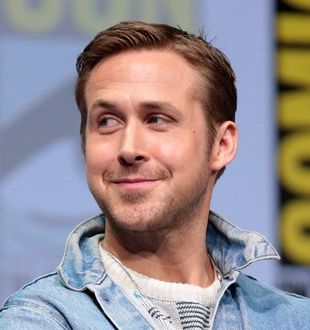
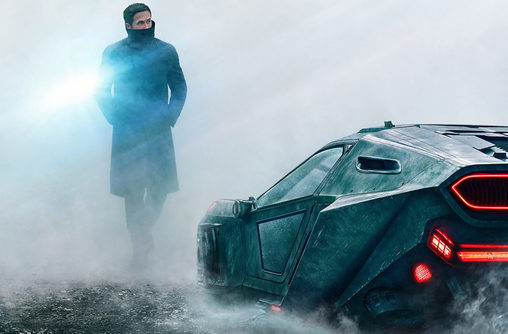
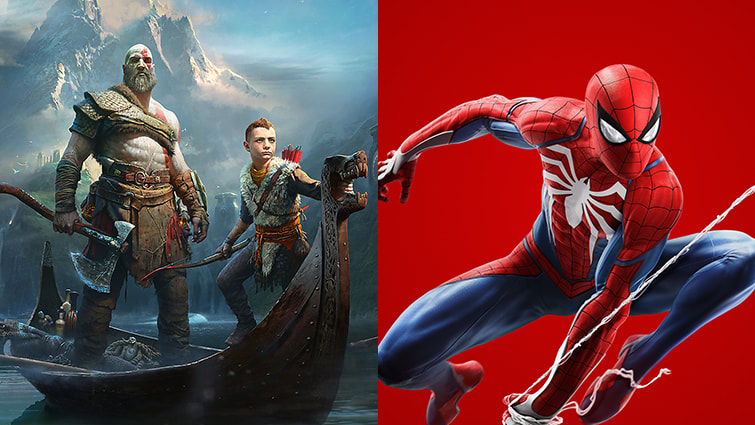
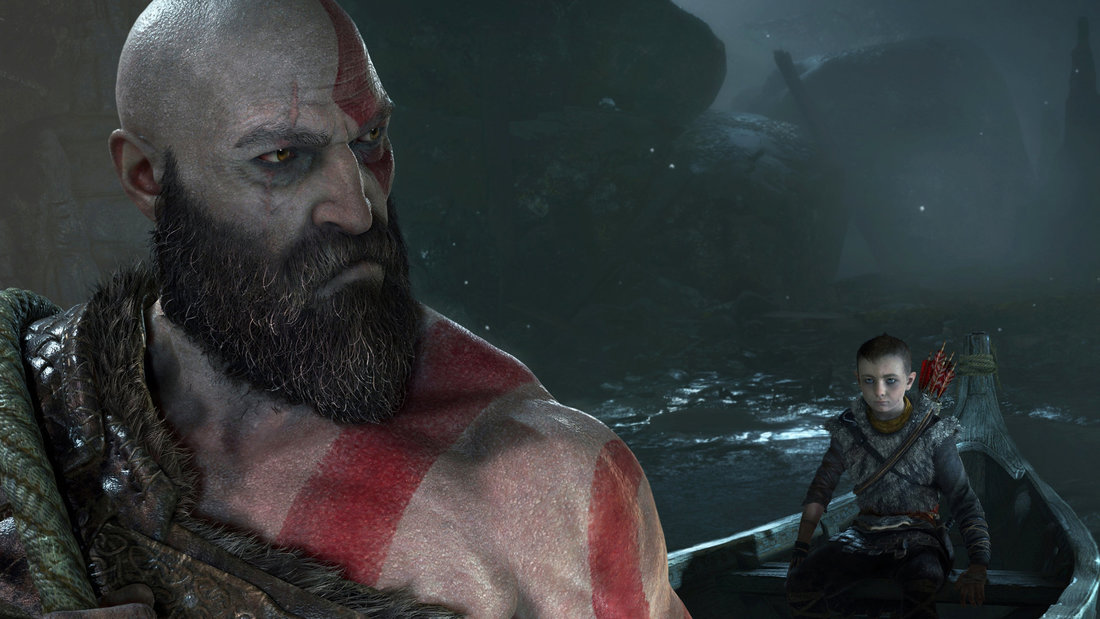
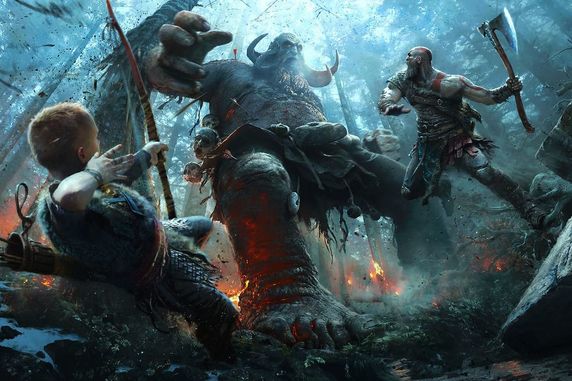
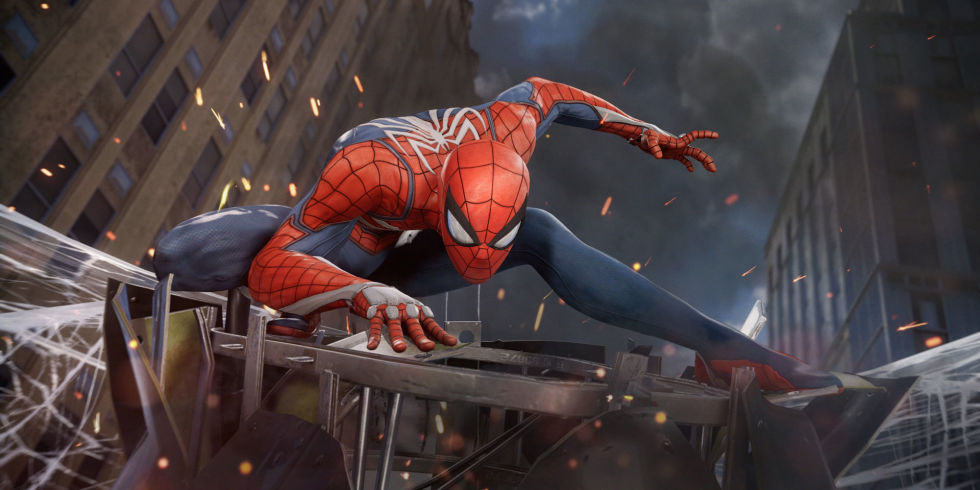
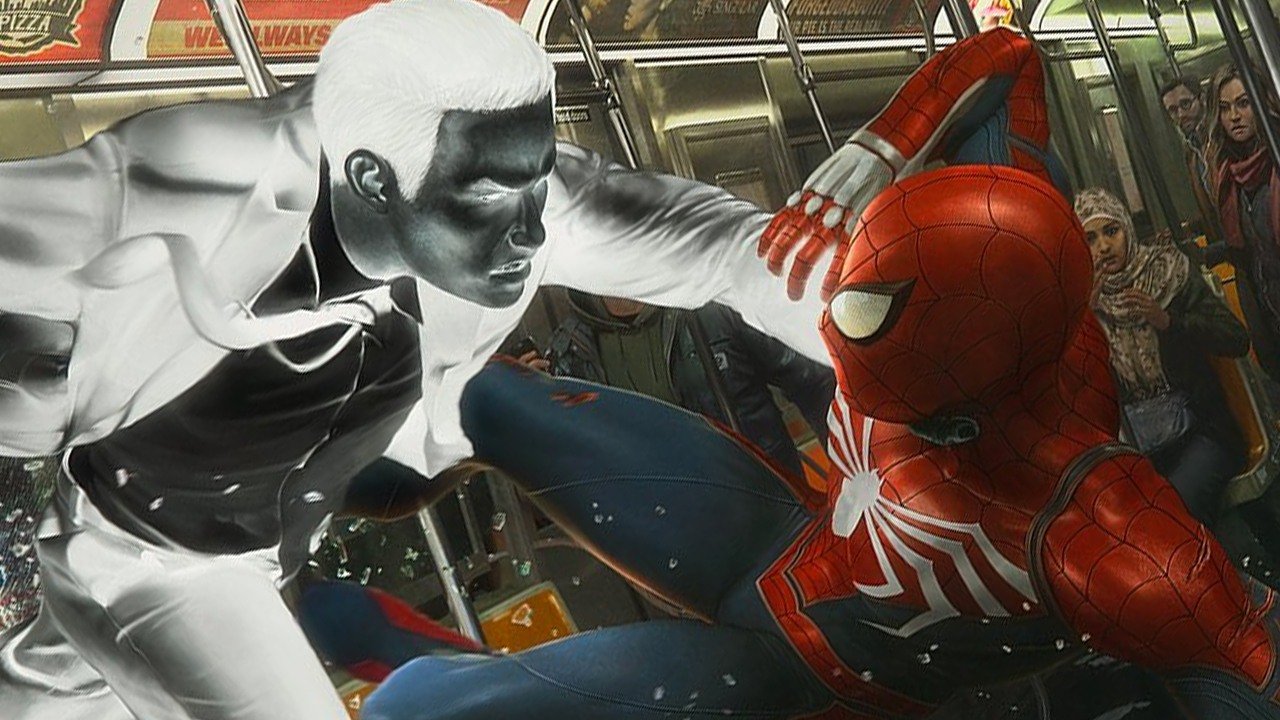
 RSS Feed
RSS Feed
